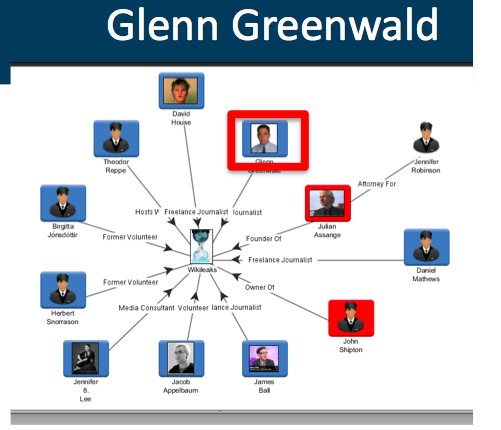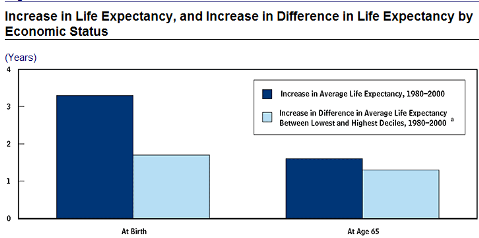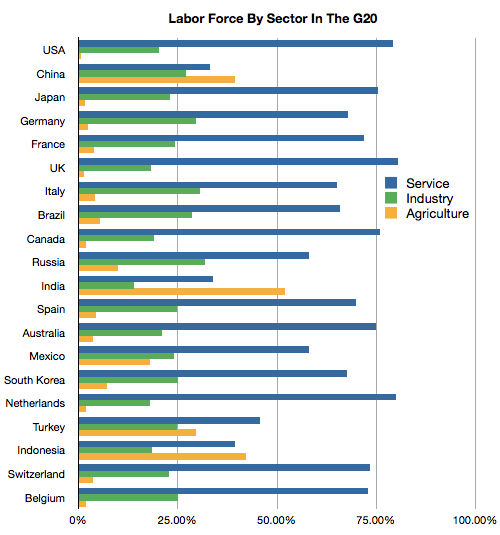Matthew Yglesias's Blog, page 2425
February 9, 2011
Endgame
Tu prends toujours metro:
— Cool book cover.
— Preservationist groups recommend review board members, nobody from wards 4, 7, or 8.
— What the NCTQ leaves out.
Here's a piano version of Yelle's "Je Veux Te Voir".


Get Greenwald
A consortium of national security contractors, led by Palantir Technology, seems to have been shopping a counter-WikiLeaks strategy. This slide is about neutralizing Glenn Greenwald:

— Glenn was critical in the Amazon to OVH transition
— It is this level of support that needs to be disrupted
— These are established professionals that have a liberal bent, but ultimately most of them if pushed will choose professional preservation over cause, such is the mentality of most business professionals.
— Without the support of people like Glenn, Wikileaks would fold
I like that they're on a first-name basis with Greenwald. Lee's 2008 book, The Fortune Cookie Chronicles: Adventures in the World of Chinese Food, is highly recommended. And remember, without the support of people like you, the Yglesias Blog would fold!


Retirement Age Follies

Brian Beutler has Steny Hoyer reiterating his openness to the idea of a higher retirement age for Social Security benefits:
"Unlike Boehner [who supported raising the retirement age outright], what I said is it ought to be on the table," Hoyer said. "We ought to consider all options, including raising the age, but there are a lot of other options also that can be considered and I also indicated that whatever we do needs to be done prospectively. And I think all parties agree with that."
As it happens that puts him in just about the same boat as Boehner, at least with respect to the question of raising the retirement age. Many Democrats support the idea of raising the wage-cap on the Social Security payroll tax to shore up the program indefinitely, and the GOP doesn't. But there remains fairly strong bipartisan support for considering a higher retirement age, too.
This idea has a kind of fake common sense quality to it. If I said, "how about a modest cut in Social Security benefits for rich people paired with a much larger cut in benefits for the poor" almost nobody would find that tempting. But life expectancy is correlated with income and this is getting truer over time:

In percentage terms, raising the retirement age from 68 to 70 would have a small impact on the expected Social Security benefits of a rich person and a large impact on the expected Social Security benefits of a poor person. It's very regressive and a healthy share of the fiscal benefit will be lost on the back end in terms of increased disability claims.


The Immiseration of Labor?

Reader JS writes in with the question that eventually bothers everyone who thinks long enough about economic growth:
I would like to believe we're heading for a future were everybody is so productive that they can live a good life working 20 hours a week. But I fear we'll get a society where perhaps 10% of the people will own all the land and capital, and they will hire 60% of the people to work for low but comfortable wages, while 30% will be totally dependent on a welfare and the odd temporary job every now and then.
If this scenario is a real possibility, then the only solution I can imagine is highly progressive taxation and wealth distribution, so that the great masses can afford to employ each other (with restaurant meals and dance lessons).
So is it a possible scenario/olution, or am I missing something?
I have heard that during the great depression, many people feared this scenario becoming the new normal, and that even Marx predicted this would happen (and that after that, the masses would revolt and institute Marxism).
People often don't realize it (though Karl Smith does) but Marx was in many ways working in the tradition of classical economists like David Ricardo and Adam Smith.
At any rate, I'm not blogging about land use at the moment because I'm hoping to build enthusiasm for a potential book, so let's focus on the "capital" side of this arrangement. What's missing from the doom analysis (and this is fresh in my mind since coincidentally I've been reading Ricardo) is the "human capital." Employee compensation accounts for the majority of GDP because the majority of the actual capital available to the economy is inside people's heads. There's a Race Between Education and Technology and we haven't seen this immiseration of labor happen because, on average, people have improved their human capital faster than physical capital has rendered it obsolete. But I don't think this is a law of nature. You could imagine the development of effective, but highly expensive, genetic engineering technology totally destabilizing the situation.


The Wages of Disengagement

Senator Barbara Boxer is outraged by the slew of new anti-choice bills being offered up by House Republicans: "It breaks faith with a decades-long bipartisan compromise, and it risks the health and lives of women."
Ann Friedman's not buying it:
Oh wait, so all those times that Democrats caved on the issue of women's health — years of rubber-stamping the Hyde Amendment, rolling over on contraception access, failing to do away with abstinence-only sex ed, shrugging off Stupak-Pitts — they were under the impression they were engaging in a bi-partisan negotiation to protect women's rights? And now they are surprised (and maybe a little hurt?) that Republicans have been empowered by these compromises to introduce even more radical anti-choice legislation? STFU. Just… STFU.
The basic dynamic here should be familiar. When Democrats decided about ten years ago to stop pushing for gun control legislation, that didn't take the issue off the table it led to a wave of envelop-pushing pro-gun bills. When the GOP temporarily stopped opposing Social Security in the wake of World War II, it led to 30 years of steady increases in Social Security beenfits and eligibility. Every conservative retreat from anti-gay bigotry inspires people to push deeper for equality. As long as a large minority of the public thinks people should be thrown in jail for having an abortion, we'll either see continual fighting on this point or else continued slippage as the debate loses an anchor on the pro-choice side.
This is also the problem with the tactical decision to move toward "abortion is bad, but…" language when talking about the issue. Whether or not the median voter ever embraces the slogan of abortion on demand and without apology, it's important for some people in positions of some prominence to be holding down that side of the fort.


Roy Blunt: Agribusinesses Subsidies Are More Important Then Feeding Poor People

The basic way that conservative politics works is that first you reduce taxes on rich people, creating a budget deficit. Then you rail against "spending" with reference to specific "weak claims" on the public purse. Then when it comes time to actually write a budget, you slash spending on "weak claimants," vulnerable people with little political influence. Then you come back and do it all over again.
Representative Roy Blunt (R-MO), for example, wants to make sure that we take food out of the mouths of poor children rather than cutting farm subsidies:
Blunt says nutrition funding – which could account for 75 percent of ag spending in the next Farm Bill – should not be exempt.
"Are there better ways to deliver the food assistance programs without assuming that they just are untouchable and we'll just look at the 25 percent that impacts direct payments and farm families and rural communities and cut that and take everything out of that?" Blunt offers.
Blunt says direct payments are lower now because of higher commodity prices and he advocates keeping programs in place that encourage farmers to continue to compete in the marketplace.
Note that giving customers money with which to buy food ends up enhancing farmers' income. In that respect, it's no different from offering farmers direct payments to grow food. The difference is that nutritional assistance specifically helps poor people as well as farmers, while "direct payments" specifically help "producers with eligible historical production of wheat, corn, grain sorghum, barley, oats, upland cotton, rice, soybeans, other oilseeds, and peanuts" along with consumers of those products. Ultimately, this program does a lot to serve the interests of large landowners whereas nutrition assistance can help people in need.


Without Licensing, How Will We Know Which Blogs to Read?
I read in comments yesterday some queries as to how people are supposed to find a quality masseuse in a world where anyone with a massage table is allowed to set up shop. I think that's pretty easy. People would connect with service providers the same way we connect with service providers today—through recommendations, reviews, and branding.
I recently had some oral surgery to remove a cyst from my jaw and repair the bone with an alloplastic graft of some kind. I'm pretty certain the guy was a duly licensed surgeon, and I have no particular problem with surgeon licensing. But in the real world, I didn't come to his office by looking him up on a surgeon registry at the licensing agency. Indeed, I didn't even check his licensing status. What happened is that he was recommended by my dentist, who was recommended by a co-worker. What's more the surgeon my dentist recommended was on Washingtonian's list of the best doctors in the DC area. He even got a special star next to his name for doubleplusgood recommending.
An important nuance here is that fraud is already illegal. You can't tell customers you won a James Beard Award unless you actually won a James Beard Award. Training and certification programs that are actually reliable indicators of quality shouldn't need the force of law to gain traction in the marketplace. Lots of forms of necessary regulation can't be replaced by better enforcement of fraud laws, but lots of the alleged problems that require licensing as a solution are dealt with perfectly well by general fraud rules.


The Inescapability of Judgment

Mark Bittman sensibly suggests that a vegan diet isn't necessarily a health one:
Which brings us to the powerful person: Oprah. Ms. Winfrey, who has been on more diets than the rest of us combined, challenged her staff to "go vegan" for a week. Intriguing, except her idea of surviving without meat and dairy — no explanation given for why we should go from too much to none — is to fill your shopping cart with fake versions of both, like meatless chicken breasts and dairy-less cheese.
But the goal is not universal veganism, which is pie-in-the-sky; it's health and sustainability. And we get there by preparing real food, vegan or not. (Remember: Coke, Tostitos and Reese's Peanut Butter Puffs — yum! — are all vegan.) The answer is not fake animal products, whose advocates argue that they're transitional to a kinder-to-animal diet. Indeed, that's good, but a real food diet is better.
Bittman instead suggests we follow "Michael Pollan's ground-breaking slogan — 'Eat food. Not too much. Mostly plants.'" Or as Bittman puts it "You want an acronym? Let's try ERF: Eat Real Food."
I like Pollan's books and appreciate what he's trying to say, but I think this concept of "real" food bears much less analytical scrutiny than its proponents tend to think. Tofu and soy sauce are both examples of processed foods, whereas french fries are "real" food. Or if there's something processed and unreal about french fries, it's the oil in which they're fried. But you can barely cook anything if you start to rule vegetable oils out bounds. It's true that the traditional peasant diets of mediterranean countries are very healthful, but there's nothing healthful about the traditional peasant diet of Ireland or Russia. Obviously, nothing in the Bittman or Pollan ouevres suggests they're unaware that an all-potato diet could be improved by introducing the occasional tofu stir fry. But I think this slogan captures less of what they mean than they think.


Has Russia Won The Future?
To inform some of the discussion from yesterday, here's a chart of labor force shares by sector in the world's 20 largest economies. This tripartite scheme is admittedly simplistic, but it's the only way to get internationally comparable data on labor force allocation:

Some observations to stir the pot. Service sector jobs outnumber industrial jobs in all 20 countries. Service sector jobs are a majority of employment except in poor (China, India, Indonesia, Turkey) countries with many farmers. The three countries with less industrial employment than the United States (Canada, UK, Netherlands) are all more egalitarian than the United States. Italy has a larger share of people working in industry than does Germany. Of major economies, the country with the largest share of people working in industry is Russia. America's agricultural sector employs freakishly few people, especially when you consider our low population density and I assume that different approaches to farm subsidies are the reason.
Nothing about this proves anything one way or another as regards specific policy questions, but the point is that industrial employment will occupy less than a third of the labor force.


The Strange Case of Pro-Confederate Monetary Policy

Mike Konczal has a post up about Ron Paul's monetary policy hearing today, in which he notes that one of Rep Paul's key witnesses is a neoconfederate kook:
I like the title: does monetary policy ever really work? As for the witnesses, Thomas J. DiLorenzo is a senior fellow at the Ludwig von Mises Institute. He's got the Lincoln stuff down pat. He appears to be best known as an author of
Matthew Yglesias's Blog
- Matthew Yglesias's profile
- 72 followers



